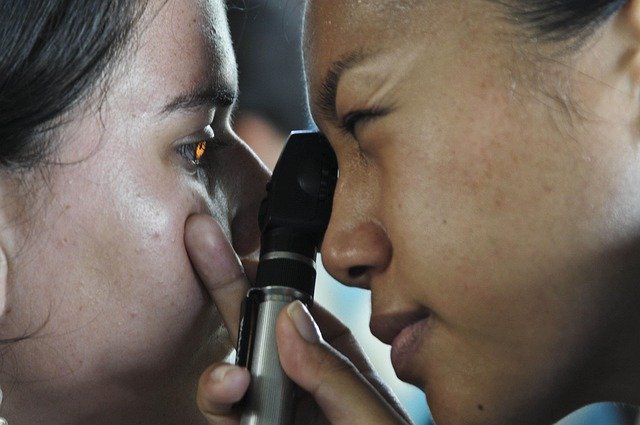Understanding Tinnitus: Signs, Treatment, and Prevention
Tinnitus, often described as a ringing or buzzing in the ears, affects millions of people worldwide. This persistent condition can range from mildly annoying to severely disruptive, impacting daily life and overall well-being. In this comprehensive article, we'll explore the signs of tinnitus, effective treatment options, prevention strategies, and the potential long-term effects of this common auditory issue.

What are the common signs and symptoms of tinnitus?
Tinnitus manifests differently for each individual, but some common signs include:
-
Ringing, buzzing, or whistling sounds in one or both ears
-
Perception of sounds when no external source is present
-
Varying pitch and volume of the phantom sounds
-
Sounds described as hissing, roaring, clicking, or humming
-
Increased awareness of tinnitus in quiet environments
These symptoms can be constant or intermittent, and may worsen during periods of stress or fatigue. It’s important to note that tinnitus is not a condition itself, but rather a symptom of an underlying issue.
What are the primary causes of tinnitus?
Tinnitus can be triggered by various factors, including:
-
Exposure to loud noises or prolonged noise exposure
-
Age-related hearing loss
-
Earwax blockage
-
Head or neck injuries
-
Cardiovascular problems
-
Certain medications (ototoxic drugs)
-
Meniere’s disease
-
Acoustic neuroma (a non-cancerous tumor)
Understanding the root cause of tinnitus is crucial for determining the most effective treatment approach. In some cases, addressing the underlying condition can significantly reduce or eliminate tinnitus symptoms.
How is tinnitus diagnosed and evaluated?
Diagnosing tinnitus typically involves a comprehensive evaluation process:
-
Medical history review and physical examination
-
Hearing tests, including audiograms and speech recognition
-
Tympanometry to assess middle ear function
-
Imaging studies (CT or MRI scans) if structural issues are suspected
-
Blood tests to rule out underlying health conditions
During the evaluation, your healthcare provider may ask you to describe the nature of your tinnitus, its frequency, and how it impacts your daily life. This information helps in creating a tailored treatment plan.
What are the most effective treatments for tinnitus?
While there is no universal cure for tinnitus, several treatment options can help manage symptoms and improve quality of life:
-
Sound therapy: Using white noise machines or hearing aids to mask tinnitus sounds
-
Cognitive Behavioral Therapy (CBT): Helping patients change their perception of tinnitus
-
Tinnitus Retraining Therapy (TRT): Combining sound therapy with counseling
-
Medications: Addressing underlying conditions or managing anxiety/depression
-
Relaxation techniques: Reducing stress-related tinnitus exacerbation
-
Lifestyle modifications: Improving diet, exercise, and sleep habits
The effectiveness of these treatments varies from person to person, and a combination approach often yields the best results.
How can tinnitus be prevented or minimized?
While not all cases of tinnitus can be prevented, several strategies can help reduce the risk or minimize its impact:
-
Protect your ears from loud noises (use earplugs or noise-canceling headphones)
-
Maintain a healthy lifestyle (exercise, balanced diet, stress management)
-
Limit exposure to ototoxic medications when possible
-
Keep blood pressure under control
-
Avoid smoking and excessive alcohol consumption
-
Practice good ear hygiene to prevent earwax buildup
-
Take regular breaks when using headphones or earbuds
Implementing these preventive measures can significantly reduce the likelihood of developing tinnitus or exacerbating existing symptoms.
What are the potential long-term effects of untreated tinnitus?
Chronic, untreated tinnitus can have significant long-term impacts on an individual’s life:
-
Sleep disturbances and insomnia
-
Difficulty concentrating and reduced cognitive function
-
Anxiety and depression
-
Social isolation and relationship strain
-
Reduced work productivity and job satisfaction
-
Increased risk of hearing loss progression
-
Negative impact on overall quality of life
Given these potential long-term effects, it’s crucial for individuals experiencing persistent tinnitus to seek professional help and explore treatment options. Early intervention can often lead to better outcomes and improved management of symptoms over time.
In conclusion, tinnitus is a complex condition that requires a comprehensive approach to diagnosis, treatment, and management. By understanding the signs, causes, and available treatments, individuals can take proactive steps to address their tinnitus and minimize its impact on daily life. Remember, while tinnitus can be challenging, many effective strategies and treatments are available to help people cope with and manage this condition successfully.
This article is for informational purposes only and should not be considered medical advice. Please consult a qualified healthcare professional for personalized guidance and treatment.




